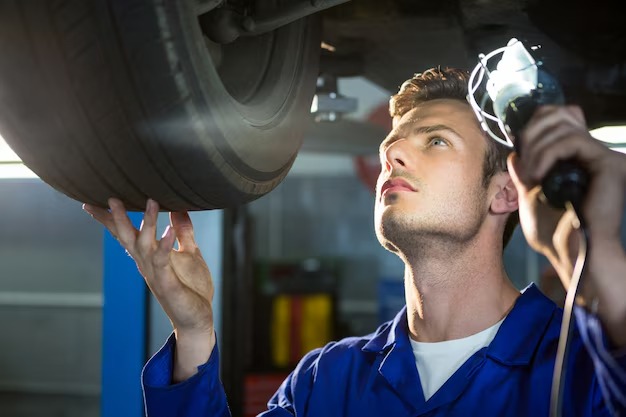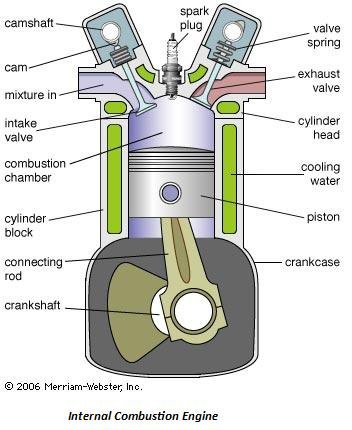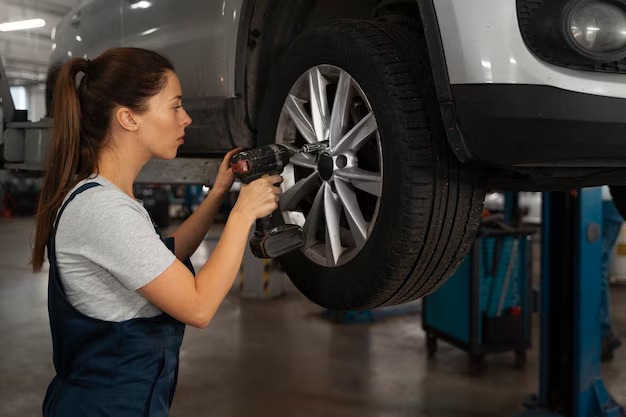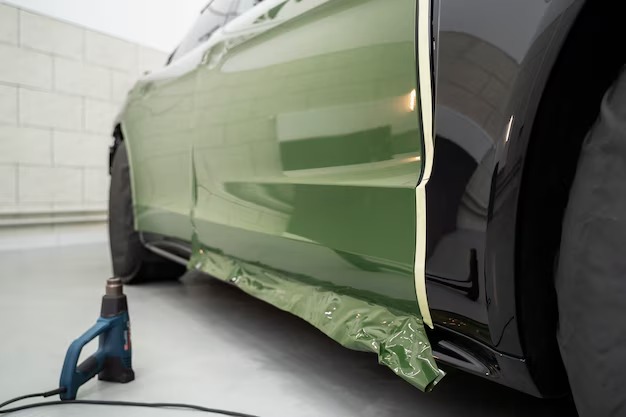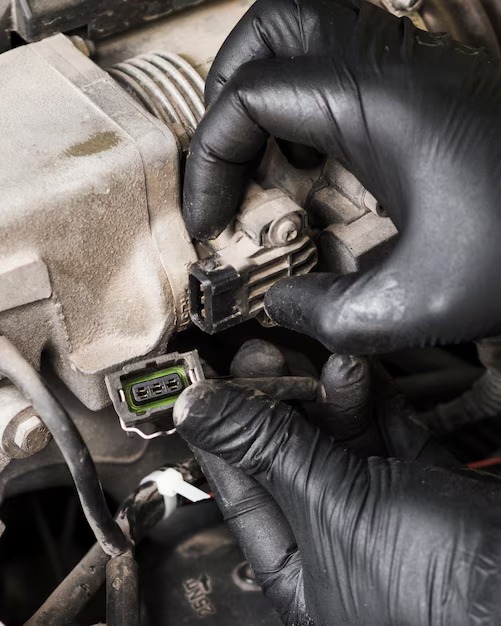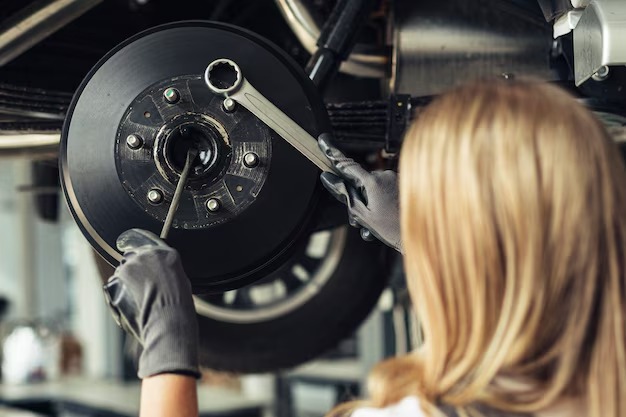How much does it cost to repair a car suspension repair cost?
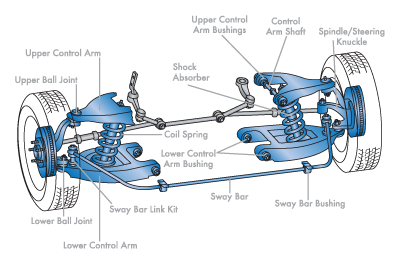
How much does it cost to repair a car suspension repair cost?
One of the most important systems in a car, the suspension, is responsible for providing a smooth and comfortable ride. However, over time, the suspension components can wear out and require repairs. Whether it’s due to potholes, rough terrain, or simply regular wear and tear, suspension repair costs can vary depending on the extent of the damage and the type of vehicle.
When it comes to car suspension repair, there are several components that may require attention. These include the shocks, struts, springs, control arms, and bushings. If any of these parts are damaged or worn out, the overall performance and safety of the vehicle can be compromised. It’s important to address suspension issues as soon as possible to prevent further damage and ensure a safe driving experience.
The cost of suspension repairs can range from a few hundred dollars to over a thousand, depending on the specific repairs needed and the make and model of the car. For example, replacing a pair of shock absorbers may cost around $200 to $400, while replacing all four shocks and struts can cost upwards of $1,000. Labor costs also play a significant role in the overall repair cost, as some suspension components may require more time and expertise to replace.
It’s worth noting that neglecting suspension repairs can lead to more expensive issues down the line. A worn-out suspension not only affects the comfort of the ride but also puts additional stress on other components, such as the tires. This can result in uneven tire wear, decreased fuel efficiency, and even compromised handling and braking performance. Therefore, it’s crucial to address suspension issues promptly to avoid costly repairs and ensure a safe and enjoyable driving experience.
The Cost of Car Suspension Repair
The suspension system of a car is responsible for providing a smooth and comfortable ride, as well as maintaining stability and control. However, like any other part of a vehicle, the suspension system can wear out over time and may require repairs.
Factors Affecting the Cost
The cost of car suspension repair can vary depending on several factors. These factors include:
- Type of Suspension System: The cost can vary depending on whether your car has a conventional suspension system or a more advanced system, such as an electronic or air suspension. Advanced systems are typically more expensive to repair.
- Extent of Damage: The cost will also depend on the extent of the damage to the suspension system. If only a few components need to be replaced, the cost will be lower than if the entire system needs to be overhauled.
- Vehicle Make and Model: The cost can also vary depending on the make and model of your vehicle. Some vehicles may have more expensive suspension components, which can increase the overall repair cost.
- Labor Costs: The cost of labor can vary depending on the location and the mechanic or repair shop you choose. Labor costs can significantly impact the overall repair bill.
Common Suspension Repairs and Estimated Costs
Here are some common suspension repairs and their estimated costs:
- Replacing Shock Absorbers or Struts: This is one of the most common suspension repairs. The cost of replacing shock absorbers or struts can range from $200 to $1,500, depending on the factors mentioned above.
- Replacing Suspension Springs: If the suspension springs need to be replaced, the cost can range from $100 to $500.
- Replacing Control Arms: The cost of replacing control arms can range from $300 to $1,000, depending on the make and model of your vehicle.
- Replacing Ball Joints: The cost of replacing ball joints can range from $200 to $500.
Please note that these estimated costs are just rough estimates and can vary depending on your specific situation. Additionally, prices can change over time, so it’s always a good idea to get multiple quotes from different repair shops to ensure you’re getting a fair price.
Overall, the cost of car suspension repair can range from a few hundred dollars to several thousand dollars, depending on the extent of the damage and the type of suspension system in your vehicle. It’s essential to address suspension issues promptly to ensure a safe and comfortable driving experience.
Factors Affecting Car Suspension Repair Cost
When it comes to car suspension repair, there are several factors that can affect the cost of the repair. From the type of suspension system to the specific parts that need to be replaced, understanding these factors can help you better estimate the repair costs.
Type of Suspension System
One of the main factors that can influence the cost of a car suspension repair is the type of suspension system your vehicle has. There are several types of suspension systems, including independent suspensions, dependent suspensions, and air suspensions. The complexity of the system can affect the cost of the repair, as more intricate systems may require specialized tools and expertise.
Specific Parts Requiring Replacement
The specific parts that need to be replaced in your car’s suspension system can also impact the overall repair cost. Suspension systems consist of various components such as shock absorbers, struts, control arms, and springs. The cost of these individual parts can vary greatly depending on their quality and brand. Additionally, some suspension components may be more prone to wear and tear, resulting in a higher likelihood of replacement and increased repair costs.
It’s worth noting that in some cases, it may be more cost-effective to replace the entire suspension system rather than repairing individual components. This can be especially true for older vehicles where multiple parts may be near the end of their lifespan.
Labor and Hourly Rates
The cost of labor and hourly rates charged by the repair shop or mechanic can significantly affect the overall repair cost. Labor costs can vary depending on the complexity of the repair, the location of the repair shop, and the level of expertise required. It’s important to obtain repair quotes from multiple shops to ensure you’re getting a fair and competitive price.
It’s crucial to address suspension issues promptly to avoid further damage and costly repairs. Regular maintenance and inspections can help catch suspension problems early, potentially saving you money in the long run. Overall, by understanding the factors that affect car suspension repair costs, you can make informed decisions and budget accordingly for any necessary repairs.
Common Suspension Repair Services
When it comes to car suspension issues, there are several common repair services that may be needed. These repairs can vary in complexity and cost, depending on the specific problem and the type of suspension system in the vehicle. Here are some of the most common suspension repair services:
1. Shock Absorber Replacement
One of the most common suspension repairs is the replacement of shock absorbers. Shock absorbers help to control the movement of the vehicle’s springs, ensuring a smooth ride and minimizing bouncing. Over time, shock absorbers can wear out and lose their effectiveness, resulting in a bumpy and uncomfortable ride. Replacing shock absorbers is usually a straightforward process, but the cost can vary depending on the make and model of the vehicle.
2. Strut Replacement
Struts are an integral part of many suspension systems, especially in front-wheel drive vehicles. They combine the functions of a shock absorber and a structural support for the suspension components. Struts can also wear out over time and may need to be replaced. This repair can be more involved and costly than shock absorber replacement, as it often requires the removal of other suspension components.
3. Suspension Spring Replacement
The suspension springs are responsible for supporting the weight of the vehicle and providing a smooth ride. Over time, these springs can weaken or break, leading to a sagging suspension or a vehicle that leans to one side. Replacing suspension springs can be a labor-intensive repair, as it often involves disassembling and reassembling various suspension components.
4. Control Arm Replacement
Control arms connect the suspension system to the frame of the vehicle and help to control the movement of the wheels. These components can become damaged or worn out, especially in older vehicles or those that have been driven over rough terrain. Replacing control arms typically involves removing and replacing other suspension components, making it a more complex and costly repair.
5. Alignment and Wheel Balancing
While not necessarily a repair, proper alignment and wheel balancing are crucial for maintaining a healthy suspension system. Misaligned wheels can cause uneven tire wear, vibration, and poor handling. It is recommended to have the alignment checked regularly and adjusted if necessary. Wheel balancing ensures that the weight distribution of the tires is equal, reducing vibrations and improving overall stability.
In conclusion, suspension repair services can range from simple shock absorber replacements to more involved repairs such as control arm replacement. The cost of these repairs can vary depending on the specific issue and the type of vehicle. It is important to address suspension problems promptly to ensure a safe and comfortable driving experience.
| Common Suspension Repair Services |
|---|
| Shock Absorber Replacement |
| Strut Replacement |
| Suspension Spring Replacement |
| Control Arm Replacement |
| Alignment and Wheel Balancing |
Signs That Your Car Suspension Needs Repair
Car suspension is crucial for a smooth and safe driving experience. Over time, the suspension components in your vehicle can wear out or become damaged, leading to a variety of issues. Here are some signs that your car suspension may need repair:
1. Uneven tire wear: If you notice that your tires are wearing unevenly, it could indicate a problem with your suspension. A damaged suspension can cause the tires to make uneven contact with the road, leading to excessive wear on certain areas of the tire.
2. Poor handling: A worn-out suspension can affect your car’s handling and stability. If you feel that your car is bouncing excessively over bumps or leaning excessively during turns, it may be time to have your suspension checked.
3. Excessive bouncing: When you hit a bump, your car’s suspension should absorb the impact and keep the ride smooth. If you notice that your car bounces excessively after hitting a bump, it could be a sign that your suspension is worn out and needs repair.
4. Nose dives during braking: If your car’s nose dives forward when you apply the brakes, it may indicate that your suspension is not properly supporting the weight of the vehicle. This can affect your braking performance and overall safety.
5. Fluid leaks: Check under your car for any signs of fluid leaks. Leaking suspension fluid can be a sign of a damaged or worn-out suspension component that needs immediate repair.
6. Unusual noises: Pay attention to any unusual noises coming from your suspension, such as clunking or squeaking sounds. These noises can indicate that your suspension components are worn out or damaged and need attention.
If you notice any of these signs, it’s important to have your car’s suspension inspected and repaired by a qualified mechanic. Ignoring suspension issues can lead to further damage and potentially unsafe driving conditions. Regular maintenance and timely repairs can help keep your car’s suspension in good working condition and ensure a smooth and safe ride.
How to Choose a Reliable Suspension Repair Shop
When it comes to car suspension repair, finding a reliable and trustworthy repair shop is essential. A good suspension repair shop will have the expertise and experience to diagnose and fix any issues with your car’s suspension system. To ensure you choose the right shop, here are some important factors to consider:
1. Reputation and Reviews
Check the reputation of the suspension repair shop by reading online reviews and asking for recommendations from friends and family. Look for shops that have a track record of providing excellent service and customer satisfaction.
2. Certifications and Experience
Make sure the suspension repair shop has certified technicians who are experienced in working on suspension systems. Look for certifications such as ASE (Automotive Service Excellence) to ensure that the technicians have the necessary skills and knowledge to handle the repairs.
3. Diagnostic Equipment and Tools
A reliable suspension repair shop should have up-to-date diagnostic equipment and tools to accurately diagnose any suspension issues. This will ensure that the repairs are done correctly and efficiently.
4. Warranty and Guarantee
Ask about the warranty and guarantee offered by the suspension repair shop. A reputable shop will stand behind their work and provide a warranty on the repairs performed. This will give you peace of mind knowing that you are covered in case any issues arise after the repair.
5. Cost and Estimates
While cost should not be the sole factor in choosing a suspension repair shop, it is important to consider. Compare estimates from different shops to ensure you are getting a fair price for the repairs. However, be cautious of shops that offer significantly lower prices as they may compromise on the quality of parts or workmanship.
6. Customer Service
Pay attention to the customer service provided by the suspension repair shop. Friendly and knowledgeable staff who are willing to answer your questions and explain the repairs needed are signs of a reliable shop that values their customers.
By considering these factors, you can choose a reliable suspension repair shop that will provide quality service and ensure that your car’s suspension system is in good hands.
Tips to Reduce Car Suspension Repair Costs
Proper maintenance and care of your car’s suspension system can help prevent expensive repairs and reduce overall costs. Here are some tips to keep in mind:
- Regularly inspect and replace worn suspension components. By conducting routine inspections and preemptively replacing worn-out components such as shocks, struts, and bushings, you can prevent more extensive damage and costly repairs down the road.
- Perform wheel alignments. Misaligned wheels can put additional stress on your suspension system, leading to premature wear and tear. Ensuring your wheels are properly aligned can extend the lifespan of your suspension components.
- Drive carefully and avoid rough roads. Potholes, speed bumps, and uneven surfaces can cause significant damage to your suspension system. By driving carefully and avoiding roads that are in poor condition, you can minimize the risk of suspension problems.
- Monitor your tire pressure. Maintaining the correct tire pressure is essential for optimal suspension performance. Improperly inflated tires can lead to uneven suspension wear and decreased handling capabilities, resulting in potential repair costs.
- Stay within your vehicle’s load capacity. Overloading your car can strain the suspension system, leading to premature wear. Be sure to check your vehicle’s load capacity and avoid exceeding it to avoid unnecessary repair expenses.
- Follow the manufacturer’s maintenance schedule. Regularly servicing your vehicle according to the manufacturer’s recommendations can help identify and address suspension issues before they escalate into more significant problems.
- Consider aftermarket parts. When it’s time to replace suspension components, consider purchasing aftermarket parts. These parts can often be more affordable than original equipment manufacturer (OEM) parts, without sacrificing quality.
- Find a reputable mechanic. Choosing a trustworthy mechanic who specializes in suspension repair can help ensure that the job is done correctly, minimizing the likelihood of costly mistakes or unnecessary repairs.
By following these tips and staying proactive with suspension system maintenance, you can potentially reduce the risk of extensive repairs and save money in the long run.
Importance of Timely Car Suspension Repair
A car’s suspension plays a crucial role in ensuring a smooth and comfortable ride, as well as maintaining control and stability on the road. It is responsible for minimizing the impact of uneven surfaces, bumps, and potholes, allowing the wheels to maintain contact with the road surface.
Over time, the suspension system can wear out due to various factors such as rough road conditions, regular use, and lack of maintenance. When the suspension system is compromised, it can lead to a range of issues that can affect the performance, safety, and longevity of your vehicle.
1. Safety:
One of the main reasons why timely car suspension repair is important is safety. A worn-out suspension can affect your ability to control the vehicle, especially during sudden maneuvers or emergency situations. It can cause excessive body roll, reducing stability, and increasing the risk of accidents.
Furthermore, worn-out shocks or struts can result in increased stopping distances, making it harder to brake effectively. This can be especially dangerous in wet or slippery conditions.
2. Ride Comfort:
A well-maintained suspension system ensures a smooth and comfortable ride. When the suspension components wear out, you may experience excessive vibrations, bumps, and noises while driving. This can lead to discomfort and fatigue, both for the driver and passengers.
By keeping your car’s suspension in good condition, you can ensure a more enjoyable and less stressful driving experience, especially during long trips.
It is recommended to have your car’s suspension system inspected regularly by a qualified mechanic and address any issues or signs of wear promptly. This can help prevent further damage, costly repairs, and ensure your safety on the road.
Remember, a well-maintained suspension system not only improves safety and comfort but also helps protect other components of your car, such as tires, brakes, and steering system, from premature wear and tear.
Question-answer: Car suspension repair cost
What factors influence the replacement cost of car parts?
The replacement cost of car parts is influenced by factors such as the make and model of the car, the specific part being replaced, and whether it’s an original manufacturer part or an aftermarket component.
How does the average cost of car repairs vary across different regions?
The average cost of car repairs can vary significantly across different regions due to factors such as labor rates, taxes, and the availability of parts.
What are some common reasons why a car may need a new suspension?
A car may need a new suspension due to wear and tear from regular use, damage from potholes or accidents, or as part of a performance upgrade.
Does car insurance typically cover the replacement cost of car parts?
It depends on the type of car insurance coverage. Comprehensive insurance may cover the replacement cost of car parts for damage not related to collisions, while collision insurance may cover parts damaged in accidents.
How can car insurance affect the replacement cost of car parts?
Car insurance can affect the replacement cost of car parts by either covering the full cost, a portion of the cost, or none of the cost depending on the policy coverage and deductible.
Are there any factors that may increase the replacement cost of car parts?
Factors such as the rarity of the part, the complexity of installation, and the need for specialized tools or expertise can all contribute to an increase in the replacement cost of car parts.
What steps can car owners take to reduce the average cost of car repairs?
Car owners can reduce the average cost of car repairs by performing regular maintenance, addressing issues promptly before they worsen, shopping around for competitive repair quotes, and considering aftermarket parts or DIY solutions when appropriate.
How does the replacement cost of car parts compare between new and used components?
The replacement cost of new car parts is typically higher than that of used or aftermarket components, as new parts often come with warranties and are manufactured to exact specifications.
Can upgrading to performance parts affect the replacement cost of car components?
Yes, upgrading to performance parts can affect the replacement cost of car components, as performance parts may be more expensive than stock parts and may require additional modifications or specialized installation.
Is it advisable to seek multiple quotes when estimating the replacement cost of car parts?
Yes, seeking multiple quotes is advisable when estimating the replacement cost of car parts, as it allows car owners to compare prices, services, and warranties offered by different repair shops or suppliers.
How much does car suspension repair typically cost?
The cost of car suspension repair can vary depending on factors such as the type of repair needed, the make and model of the vehicle, and the labor rates of the repair shop. It can cost anywhere from a few hundred to several thousand dollars.
What are some common signs of car suspension problems?
Common signs of car suspension problems include a rough or bumpy ride, uneven tire wear, excessive bouncing after hitting bumps, difficulty steering, and the car leaning to one side.
What factors affect the cost of suspension repair and replacement?
Factors that affect the cost of suspension repair and replacement include the type of suspension problem, the specific components needing repair or replacement, the type of vehicle, and whether new or used parts are used.
How can you check your vehicle’s suspension system for problems?
You can check your vehicle’s suspension system for problems by visually inspecting the components for signs of damage, listening for unusual noises while driving, and paying attention to how the car handles and rides.
What are the consequences of driving a car with a broken suspension?
Driving a car with a broken suspension can be extremely dangerous as it can lead to loss of control, increased stopping distances, and the risk of accidents. It can also cause further damage to other components of the vehicle.
Is it more cost-effective to repair or replace suspension parts?
It depends on the extent of the damage and the cost of the parts and labor involved. In some cases, repairing may be more cost-effective, while in others, replacement may be necessary for safety and longevity.
What is the average cost of suspension repairs for an old car with rust?
The average cost of suspension repairs for an old car with rust can vary widely depending on the extent of the rust damage, the availability of replacement parts, and the labor rates of the repair shop.
Can neglecting suspension repairs lead to more expensive repairs later on?
Yes, neglecting suspension repairs can lead to more expensive repairs later on as the damage worsens and affects other components of the vehicle’s suspension system.
What are some measures drivers can take to avoid suspension repairs?
Drivers can avoid suspension repairs by practicing good vehicle maintenance, avoiding rough roads and potholes whenever possible, and addressing any signs of suspension problems promptly before they worsen.
How much does it typically cost to replace a suspension component like a coil spring or control arm?
The cost to replace a suspension component like a coil spring or control arm can vary depending on the make and model of the vehicle, the specific part needed, and the labor rates of the repair shop. It can range from a few hundred to over a thousand dollars.

